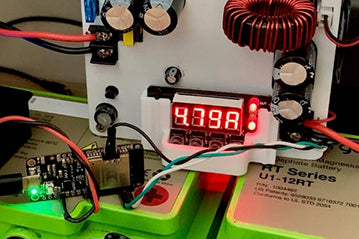
How to Choose the Right Controller for Your Solar System
A solar controller is an essential device used to manage the process of charging the Lithium battery from the solar panels. In this blog, we will discuss the role of solar controllers, different types of controllers, and how to choose the right one.
Role:
The main role of a solar controller is to manage the process of charging the battery from the solar panels. The controller is responsible for monitoring the output voltage and current of the solar panels and ensuring that this energy is properly stored in the battery. If the battery is fully charged, the controller will automatically disconnect the solar panels to avoid overcharging and extend the battery's life.
Different Types of Solar Controllers:
1.PWM Controllers: PWM controllers are a traditional type of solar controller that regulates the flow of current by adjusting the output voltage of the solar panels. This type of controller is simple to use and relatively inexpensive, but less efficient than MPPT controllers.
2.MPPT Controllers: MPPT controllers are high-efficiency solar controllers that use Maximum Power Point Tracking (MPPT) algorithms to increase the efficiency of solar panels under different conditions, making better use of solar resources. This type of controller is more expensive but offers better battery charging efficiency and performance.
How to Choose the Right Controller:
Choosing the right solar controller depends on several factors, including the voltage and current of the solar panels, the capacity and type of battery, and the type of load you need to control. Here are some factors to consider:
1.Voltage and Current of Solar Panels: The controller's voltage and current levels must match your solar panels to ensure proper battery charging and optimal efficiency.
2.Battery Capacity and Type: The controller must be able to manage the capacity and type of battery to ensure proper control and protection during charging and discharging.
3.Load Type: If you need to control a load, you need to select a controller that can manage the relationship between battery charging and load operation.
4.MPPT or PWM: If you need better battery charging efficiency and performance, choose an MPPT controller; if you are more cost-sensitive, you can choose a PWM controller.
Conclusion:
Solar controllers are crucial devices for managing the relationship between solar panels and batteries. Choosing the right controller can ensure the efficient operation of a solar system and make the most of solar energy resources. Before choosing a controller, you need to consider the specifications of your solar panels, the capacity and type of battery, and the type of load you need to control. Whether you choose a PWM or MPPT controller, you need to ensure that it meets your specific needs and has efficient performance and reliable protection mechanisms. If you have any questions or need help, consult a professional solar system installer or technician.

0 comments